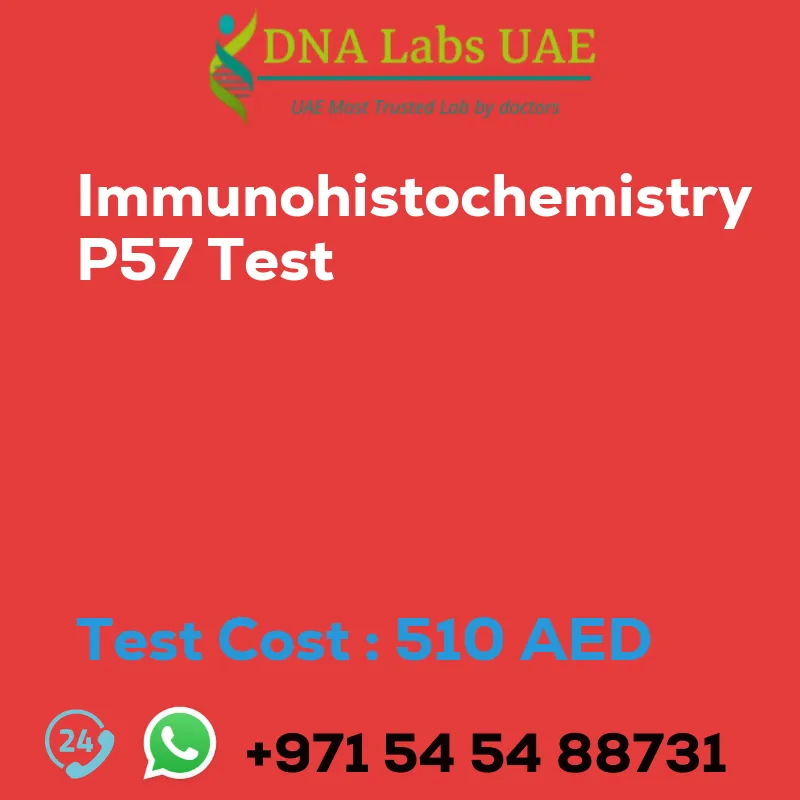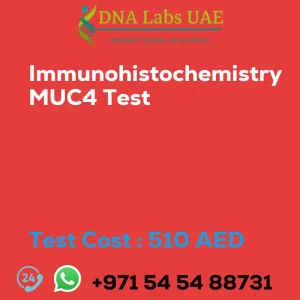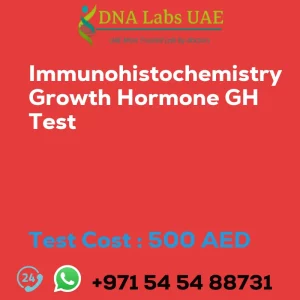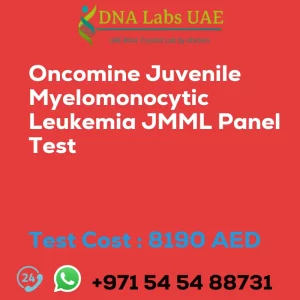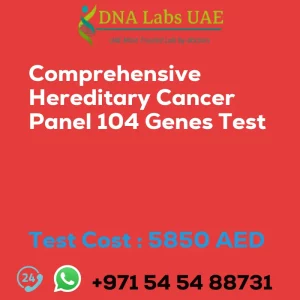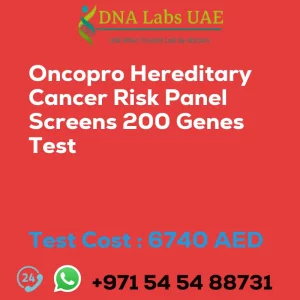IMMUNOHISTOCHEMISTRY P57 Test
Test Name: IMMUNOHISTOCHEMISTRY P57 Test
Components: Price: 510.0 AED
Sample Condition: Submit tumor tissue in 10% Formal-saline OR Formalin fixed paraffin embedded block. Ship at room temperature. Provide a copy of the Histopathology report, Site of biopsy and Clinical history.
Report Delivery: Sample Daily by 6 pm; Report Block: 5 days Tissue Biopsy: 5 days Tissue large complex: 7 days
Method: Immunohistochemistry
Test Type: Cancer
Doctor: Oncologist
Test Department: HISTOLOGY
Pre Test Information: Provide a copy of the Histopathology report, Site of biopsy and Clinical history.
Test Details
The P57 immunohistochemistry (IHC) test is a diagnostic tool used in pathology to detect the presence of the P57 protein in tissue samples. P57 is a protein that plays a crucial role in cell cycle regulation and is primarily expressed in the nuclei of cells in the G1 phase of the cell cycle.
The P57 IHC test is commonly used in the diagnosis of hydatidiform moles, a type of gestational trophoblastic disease. Hydatidiform moles are abnormal growths that occur in the uterus during pregnancy and can lead to complications if not properly diagnosed and managed.
In a P57 IHC test, tissue samples, typically obtained through biopsy or surgical resection, are processed and embedded in paraffin. Thin sections of the tissue are then mounted onto slides and subjected to a series of steps to enhance the visibility of the P57 protein.
The P57 IHC test utilizes specific antibodies that bind to the P57 protein, and these antibodies are usually labeled with a chromogen or a fluorescent dye. The presence of the P57 protein is then visualized under a microscope, and the staining pattern and intensity are assessed by a pathologist.
A positive P57 IHC test result indicates the presence of the P57 protein in the nuclei of cells, confirming the diagnosis of a complete hydatidiform mole. Conversely, a negative result suggests the absence of P57 protein expression, which is typically seen in partial hydatidiform moles or normal placental tissue.
The P57 IHC test is a valuable tool in the diagnosis and differentiation of gestational trophoblastic diseases, particularly in cases where the histopathological features are ambiguous or inconclusive. It provides an objective and reliable method to confirm the presence or absence of the P57 protein, aiding in accurate diagnosis and appropriate patient management.
| Test Name | IMMUNOHISTOCHEMISTRY P57 Test |
|---|---|
| Components | |
| Price | 510.0 AED |
| Sample Condition | Submit tumor tissue in 10% Formal-saline OR Formalin fixed paraffin embedded block. Ship at room temperature. Provide a copy of the Histopathology report, Site of biopsy and Clinical history. |
| Report Delivery | Sample Daily by 6 pm; Report Block: 5 days Tissue Biopsy: 5 days Tissue large complex : 7 days |
| Method | Immunohistochemistry |
| Test type | Cancer |
| Doctor | Oncologist |
| Test Department: | HISTOLOGY |
| Pre Test Information | Provide a copy of the Histopathology report, Site of biopsy and Clinical history. |
| Test Details |
The P57 immunohistochemistry (IHC) test is a diagnostic tool used in pathology to detect the presence of the P57 protein in tissue samples. P57 is a protein that plays a crucial role in cell cycle regulation and is primarily expressed in the nuclei of cells in the G1 phase of the cell cycle. The P57 IHC test is commonly used in the diagnosis of hydatidiform moles, a type of gestational trophoblastic disease. Hydatidiform moles are abnormal growths that occur in the uterus during pregnancy and can lead to complications if not properly diagnosed and managed. In a P57 IHC test, tissue samples, typically obtained through biopsy or surgical resection, are processed and embedded in paraffin. Thin sections of the tissue are then mounted onto slides and subjected to a series of steps to enhance the visibility of the P57 protein. The P57 IHC test utilizes specific antibodies that bind to the P57 protein, and these antibodies are usually labeled with a chromogen or a fluorescent dye. The presence of the P57 protein is then visualized under a microscope, and the staining pattern and intensity are assessed by a pathologist. A positive P57 IHC test result indicates the presence of the P57 protein in the nuclei of cells, confirming the diagnosis of a complete hydatidiform mole. Conversely, a negative result suggests the absence of P57 protein expression, which is typically seen in partial hydatidiform moles or normal placental tissue. The P57 IHC test is a valuable tool in the diagnosis and differentiation of gestational trophoblastic diseases, particularly in cases where the histopathological features are ambiguous or inconclusive. It provides an objective and reliable method to confirm the presence or absence of the P57 protein, aiding in accurate diagnosis and appropriate patient management. |

